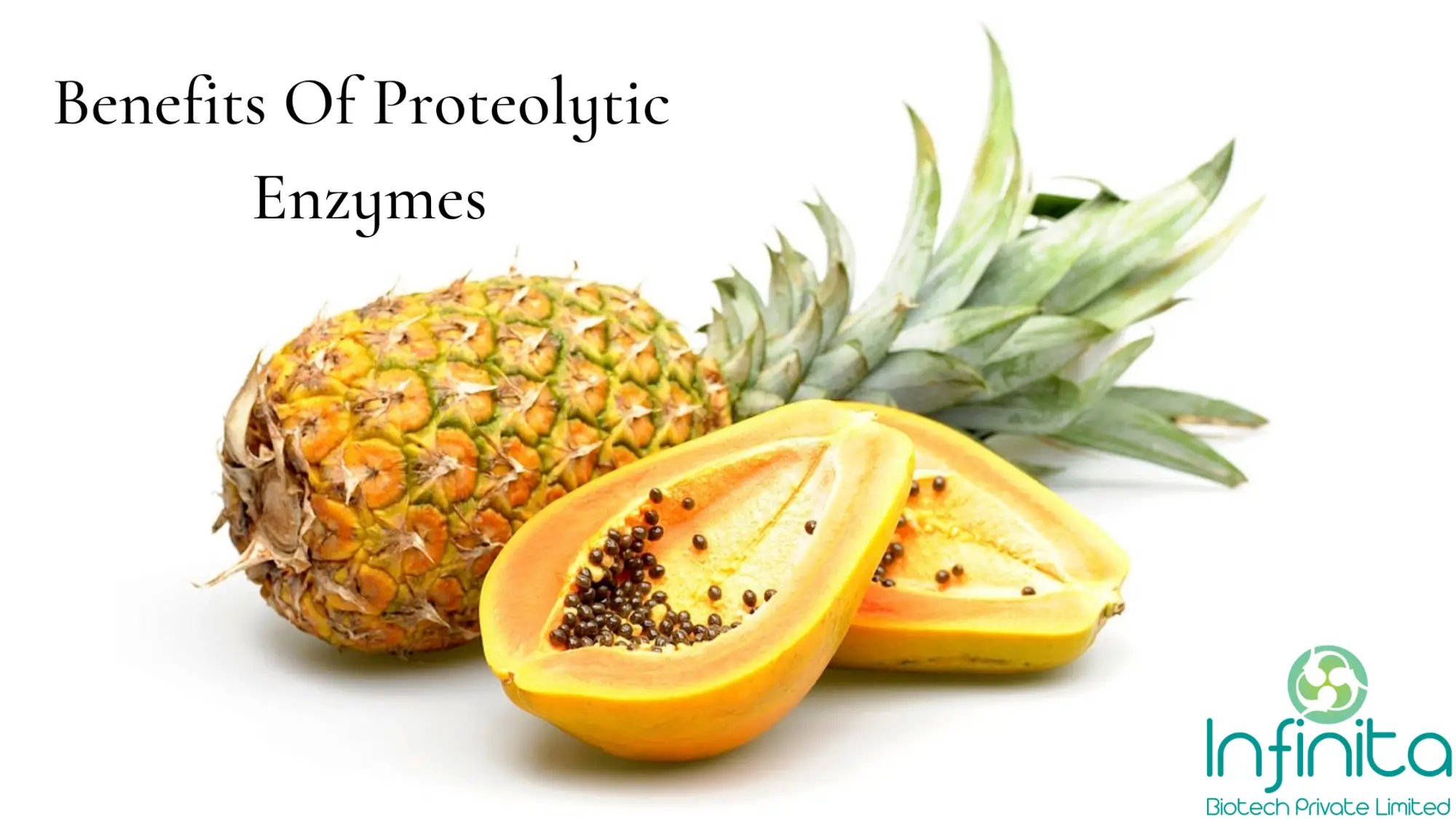Proteolytic Enzymes: Benefits and Sources
Along with the vitamins and minerals that we consume and the hormones our body produce, enzymes are required for them to function properly. Additionally, enzymes like proteolytic enzymes help in regulating our metabolic functions and assisting in maintaining our energy levels and stamina.
Proteolytic enzymes are the enzymes that are tailor-made to aid in the process of digestion. They help in the digestion of proteins from our by breaking them into smaller units known as amino acids. These enzymes have several different roles that include:
- Supporting immune system
- Encouraging the healing of muscle and tissue recovery
- Aiding several digestive functions
You can take enzymes through supplements, however, they are naturally found in a variety of foods. One such example is papaya that consists of the proteolytic enzyme called papain, which is popularly used in meat as a meat tenderizer.
What are proteolytic enzymes?
Proteolytic enzymes are a group of enzymes that aid in the breakdown of the long chains of proteins into peptides and eventually into amino acids. They are often referred to as protease, peptidase, or proteinase.
Your digestive tract produces a variety of essential enzymes. The major proteolytic enzymes consist of:
- Exopeptidases that work at the protein ends
- Endopeptidases that have catalytic mechanisms and work at different target sites.
Examples of endopeptidases are cysteine, serine, glutamic, threonine, and metalloendopeptidases.
Proteolytic enzymes are present across different species that include human, archaea, bacteria, algae, plants, viruses and certain animals. However, it is difficult to get these vital enzymes from our day to day diet.
We consume foods that are either processed or cooked and hence, the effectiveness of these enzymes is lost. This is the reason many people find the need to include supplements with their meals.
While both the digestive as well proteolytic enzymes are available as supplements, the best way to take these much needed proteolytic enzymes is by consuming whole uncooked vegetables and fruits since they not just help in providing digestive enzymes, but also vitamins, electrolytes, antioxidants, etc.
Proteolytic Enzyme Benefits
1.Controlling inflammation and optimising blood flow
Proteolytic enzymes are important modulators and regulators that are required for responding to the stresses in the body. When your body is stressed it causes inflammation which is the root cause of most of the diseases.
These enzymes aid our bodies to respond to inflammation by providing protection. According to several researches, proteolytic enzymes help in modulating the inflammatory processes with the help of several mechanisms which include reducing swelling of mucous membranes, dissolving blood-clot microthrombi and fibrin deposits, and decreasing capillary permeability.
Proteolytic enzymes also help in the breakdown of plasma proteins and cellular debris into smaller fragments at the injury site. This helps in greatly facilitating their passage through the lymphatic system, which results in more rapid resolution of swelling along with consequent relief in pain and discomfort in the joints and bones that are affected.
This indicates that there are several benefits of proteolytic enzymes to treat osteoarthritis. Additionally, they also help athletes to recover faster from races and workouts.
Researches suggest that papain, bromelain, pancreatin, rutin, act as vital modulators and regulators when it comes to the inflammatory response.
2. Helps in preventing diabetic heart diseases and atherosclerosis
Papain is the proteolytic enzyme found in papayas that helps prevent diabetic heart diseases and atherosclerosis. Papayas are also known to be an amazing source of vitamin C, vitamin A, and powerful antioxidants.
These nutrients help in preventing the oxidation of cholesterol. When cholesterol is oxidised, it sticks and builds up in the blood vessel walls that form dangerous plaques that could cause strokes or heart attacks.
One manner in which the dietary vitamin C would exert this kind of an effect is via its associating with a compound known as paraoxonase, which is an enzyme that inhibits the oxidation of both LDL and HDL cholesterol. According to a study published in molecular imaging, it is confirmed that proteolytic enzymes possess antiatherosclerotic therapeutic effects.
3. Reduction in the severity of inflammatory bowel diseases and ulcerative colitis
Several studies have shown that using proteolytic enzymes helps in the reduction of severity of inflammatory bowel diseases and remission of ulcerative colitis. In several studies, it was stated that an oral administration of 5 mg of bromelain daily helps in the reduction of the severity and development of inflammatory bowel diseases. In another study, it was noted that bromelain also reported in inducing rescission in two patients that had refractory ulcerative colitis.
4. Cleaning your immune system
Amongst all the crucial actions of proteolytic enzymes, one such action includes increasing the potency of natural killer cells, natural killer cells are also referred to as lymphocytes that bind to tumour cells and virus-infected cells for killing them. Proteolytic enzymes also hold the capability to degrade pathogens which can inhibit the normal functioning of the immune system.
Immune system-related complexes are a part of the immune response. However, when it happens in excess, they can cause kidney diseases, rheumatoid diseases, and nerve inflammations.
Several; evidences suggest that papain, and many other proteolytic enzymes can help in breaking the existing pathogenic immune complexes and prevent their formation, thereby helping in an increases lymphatic drainage. This, in turn, offers a stimulatory effect on the immune system. This infers that the proteolytic enzymes are natural immunity boosters.
This is beneficial to people having conditions tied to higher levels of immune complexes or even autoimmune diseases such as multiple sclerosis, rheumatoid arthritis, scleroderma, and lupus.
5. Helps in fighting against cancer
Several studies have suggested that the nutrients present in proteolytic enzyme-containing foods have been proven to be beneficial in preventing many different types of cancers like colon cancer. The fibre present in foods like papaya binds to the cancer-causing toxins present in the colon and helps in keeping them away from the healthy cells of the colon.
Additionally, the nutrients present in papaya such as vitamin C, folate, vitamin E and beta-carotene are all associated with a decreased risk of colon cancer.
6. Providing anti-inflammatory properties
Proteolytic enzymes help in protecting the colon cells from free radical damage and helps in the absorption of nutrients in the body. Not only do the proteolytic enzymes help the body to digest and break down protein, but also have anti-inflammatory properties, according to some studies, that help in decreasing the inflammation and swelling in the colon. Specifically, this makes papain and bromelain beneficial to people that have ulcers and coeliac or Crohn’s disease.
Proteolytic enzymes are vital for several bodily functions and are commonly known for the role they play in the process of digestion. However, many other proteolytic enzyme benefits include cell division, protein recycling, blood clotting, and immune function. Your body can produce them, however, you can consume them by having specific foods like papaya and pineapple or through supplements.

 Summarize this Article with AI
Summarize this Article with AI






